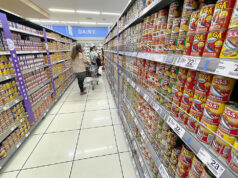
THE Department of Agrarian Reform (DAR) said it has turned over its functions to the Ministry of Agriculture, Fisheries, and Agrarian Reform (MAFAR) of the Bangsamoro Autonomous Region in Muslim Mindanao (BARMM).
“We are confident that under the leadership of MAFAR Minister Mohammad Yacob, agrarian reform will be implemented in all of Bangsamoro and rural development will flourish. Our farmers are in good hands,” Agrarian Reform Secretary John R. Castriciones said in a statement Thursday.
Republic Act. No. 11054, or the Organic Law for the Bangsamoro Autonomous Region in Muslim Mindanao, abolished the Autonomous Region in Muslim Mindanao (ARMM). BARMM is composed of five provinces: Lanao del Sur, Sulu, Maguindanao, Basilan, and Tawi-tawi, as well as the city of Cotabato.
MAFAR merges the ARMM’s former agriculture, fisheries, and agrarian reform agencies.
DAR’s functions and powers as stated in Executive Order No. 129-A, series of 1987 which were transferred to MAFAR include the implementation of agrarian laws, formulation of policy, acquisition and distribution of land, as well as providing farmers with free legal services and support services through credit and rural infrastructure, and approving or disapproving land conversion.
The adjudicatory functions of DAR were not officially transferred, since the MAFAR still needs to form an agrarian reform adjudication board like that of DAR’s, which is part of its Agrarian Legal services.
“Our mission is to empower farming and fishing communities by ensuring equitable access to support services and optimum economic benefits,” MAFAR Minister Mohammad Yacob said.
In a separate statement, the department said that 1,742 hectares of land in Basilan, Maguindanao, and Tawi-Tawi were distributed to 793 agrarian reform beneficiaries (ARBs) from BARMM. This is the first land distribution under MAFAR.
There were also 93 individual certificate of land ownership awards (CLOA) distributed, which covers 238.9 hectares.
BARMM agrarian cooperatives were also given machinery, which include transplanters, cultivators, incubators, spindle machines and tractors, as well as seedlings under DAR’s Climate Resilient Farm Productivity Support program, which will benefit 500 ARBs and non-ARBs. — Vincent Mariel P. Galang



